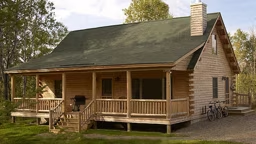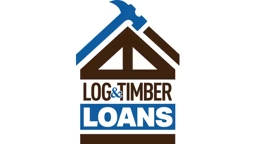

Photo by Scott Graham on Unsplash
When planning to buy or build a log or timber home, there are a host of moving parts to keep in play. But for all of the decisions to be made and people who will contribute to the project, many buyers find that one of the most challenging pieces of the puzzle happens early in the process: It’s proving the value of the home-to-be in order to obtain financing. A competent, knowledgeable appraiser can be an ace up your sleeve.
The value that an appraiser assigns to a log or timber home drives the remaining elements of the financing transaction, such as how much can be borrowed, the amount of cash or equity needed and more. The most difficult task for an appraiser when it comes to log and timber home valuations is usually finding an appropriate number of comparable sales (“comps,” in industry jargon). Whether the transaction is a purchase, refinance or construction loan, the sales values of log or timber homes that have occurred within a reasonable distance of the subject property influence the value of the home and land being appraised. In the event that insufficient log or timber home sales have occurred in the vicinity, the appraiser often is allowed to include conventional home sales data in the valuation while making adjustments to allow for differences in the structures, such as quality of construction, square footage, number and type of rooms, site characteristics and the inclusion or absence of amenities, such as fireplaces or swimming pools.
How Can You Ensure a Fair Appraisal?
While most lenders are required by law to use a third-party assignment and review process, it is absolutely appropriate for the borrower and the lending officer to inquire about an appraiser’s experience in evaluating log and timber homes. Ask: Has the appraiser worked with log or timber homes in the past? Does the appraiser understand that often the quality of construction and finishes in a log or timber home exceed those of conventional homes?
What if the Appraisal Doesn’t Meet Your Expectations?
A buyer is always given the opportunity to review the appraisal. If a lender is involved, you can address your concerns with him/her and, in turn, these are relayed to the reviewer and the appraiser for an appropriate response.
Usually, concerns about an appraisal relate directly to the value assigned to the property, and it can be a subjective exercise — people may simply disagree. At other times, there may be a legitimate concern about a basic component of the appraisal. Measurements could be questioned; comps may be too distant; etc. In that case, the owner or purchaser can ask if another appraiser can be selected and conduct a second appraisal (this is rare) or request that the appraiser recheck his or her math or reevaluate his or her conclusions as to value based on new information or if something was overlooked.
When a bank is not involved and you are engaging an appraiser to value a log or timber home, use the points mentioned to make an informed decision. Then, if the you’re not satisfied with the results, you are free to go directly to the appraiser to express your concerns and reassess the valuation. A word of caution here: If the appraisal is ordered by an individual, it’s often disqualified for use by a financial institution according the Federal regulations.
Qualifying an Appraiser
How do you know if an appraiser is qualified to assess the value of your prospective home? True pros have designations, such as MAI, SRPA and SRA, indicating that they’re members of the highly respected Appraisal Institute and have completed courses to achieve these designations.
Remember that purchase or refinance transactions involving a bank or other lender will require that the appraisal be ordered by the financial institution to comply with Federal law. The institution will often contract with a third-party vendor that specializes in ordering and reviewing appraisals. This minimizes or eliminates the prospect of unethical influence from other parties with interest in the transaction. If an issue arises during the review, the vendor will raise them with the appraiser.
Of course, experience in prior log and timber home appraisals is a great enhancement to the appraiser’s qualifications, and in some cases your log or timber home provider (or even other homeowners) can recommend appraisers familiar with this specialized type of construction.
Adam Headley is a writer and career banker with more than 30 years of experience in finance and lending. He has written extensively on the varied aspects of building, purchasing and owning a log or timber home.








_11868_2024-09-17_08-44-256x288.avif)


